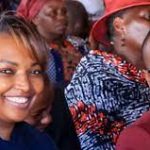A Kenyan woman has bagged Sh38 million in the global Dan David prize for using digital technologies to capture and preserve artefacts.
Ms Chao Tayiana Maina captures and preserves “previously hidden or suppressed historical narratives in Kenya, enabling communities to engage with their cultural heritage and centring African histories within digital spaces”.
Ms Maina is one of 11 winners of the prize in 2023. They will each receive $300,000 in recognition of their contribution to the study of the past and to support their future endeavours.
The award ceremony will be held in Tel Aviv, Israel in May 2023.
She is a Kenyan historian and digital heritage specialist working at the intersection of digital humanities and public education.
She uses digital technologies to deepen engagement with African histories, unearth previously hidden or suppressed historical narratives and make these accessible to a wider audience.
Digital explorer
The mathematics and computer science graduate says her passion for history began at a young age and she considers herself a historian by birth and a digital explorer by profession.
In 2013 while still in college and armed with just a blog, Ms Maina embarked on a project to document the tangible and intangible Kenya’s disappearing railway infrastructure.
The project, which was dubbed “Save the railway”, entailed photographs, 3D images, stories and research to preserve the history of the railway which has shaped Kenyan history for more than a century.
Her work is one of the largest photographic documentation of railway history in the country.
Through the support of family and friends, Ms Maina was able to travel to various historical sites in Mombasa, Voi and Kisumu to document Kenya’s railway heritage.
Through the lens
The Dan David prize winner also retold the story of British colonialism in Kenya through the lens of the natives and documented the detention camps using 3D technology.
The concentration camps were used to torture detainees during the Mau Mau insurgency.
Ms Maina’s passion for history saw her further her studies at the Glasgow School of Art where she graduated with a distinction in the MSc International Heritage Visualisation program.
“On this International Women’s Day, I urge women to believe that we have the right to tell our own stories and histories,” says the historian.
She admits that she would not have done this alone.
“I would like to honour two women, Bettina Ng’weno and Njane Mugambi who contributed their expertise and finances towards my first project,” Ms Maina says.
She considers herself a “headstrong historian” keen to legitimise the formerly delegitimised narratives which she believes have a reparative power.



